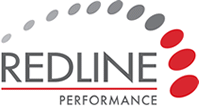
If you’re leading a B2B sales team, you’ve likely asked yourself: “Why is performance often inconsistent across my team? Why aren’t more of my salespeople hitting target in a predictable way?”
Often, these questions reveal deeper issues that don’t show up in the dashboard. Because while top-line numbers might give you a clue, they rarely tell the full story.
At Redline, we believe performance is a function of process, people, and leadership — and the only way to improve it sustainably is to understand the gaps holding your team back.
Here are six simple but powerful questions every sales leader should ask to uncover the truth about their team’s effectiveness.
1. Do we have a clearly defined sales strategy and target profile?
Without alignment on your ideal customer profile (ICP), your team may be spending time on the wrong prospects. Similarly, if your value proposition isn’t clear and consistently used in conversations, you’re relying on individual rep interpretation rather than a unified message.
Tip: Start by reviewing how salespeople describe your solution to prospects. Is it consistent? Is it outcome-focused?
2. Is our sales process clearly defined — and actually followed?
Most companies have a sales process. But few can confidently say it’s being followed by everyone. If your pipeline stages are unclear or inconsistently used, forecasting becomes unreliable and coaching opportunities are missed.
Tip: Audit CRM entries across a few deals. Are key milestones, notes, and next steps documented?
3. Are our salespeople confident in their selling skills?
Consultative selling requires salespeople to ask great questions, uncover pain, and lead a value-based conversation. But when training is sporadic or only given at onboarding, skill fade is inevitable.
Tip: Ask salespeople what part of the sales cycle they find hardest. Their answers will reveal confidence gaps you can coach to.
4. Are managers actually coaching, or just firefighting?
Sales managers wear many hats, but coaching often gets squeezed out by admin, deals, and meetings. Yet it’s one of the highest-leverage activities for improving team performance.
Tip: Coaching is not just about pipeline reviews. Real coaching happens in skill development, call feedback, and structured 1:1s.
5. Are we making the most of our sales tools?
From CRM platforms to sales enablement tools, tech adoption is critical — but only if those tools are embedded in workflows and used to drive decisions. Otherwise, they become noise.
Tip: Review usage reports. If only 50% of salespeople log activities consistently, it’s not a data problem, it’s a process one.
6. Can our team sell effectively in remote or hybrid environments?
Virtual selling is now standard, but it’s not the same as in-person. Rapport-building, structure, and follow-up require new skills. A team that hasn’t adapted will struggle to build momentum.
Tip: Listen to a few recent call recordings. Are salespeople leading the call, sharing an agenda, and closing clearly?
Want to know how your team scores?
We’ve built a short, 5-minute Sales Effectiveness Scorecard that helps you quickly assess your team’s strengths and identify hidden performance gaps.
Take the assessment here: https://forms.gle/iz5MUVKSfw7EBfm4A
We’ll analyse your scorecard results and provide some practical insights via return email, based on your answers.
